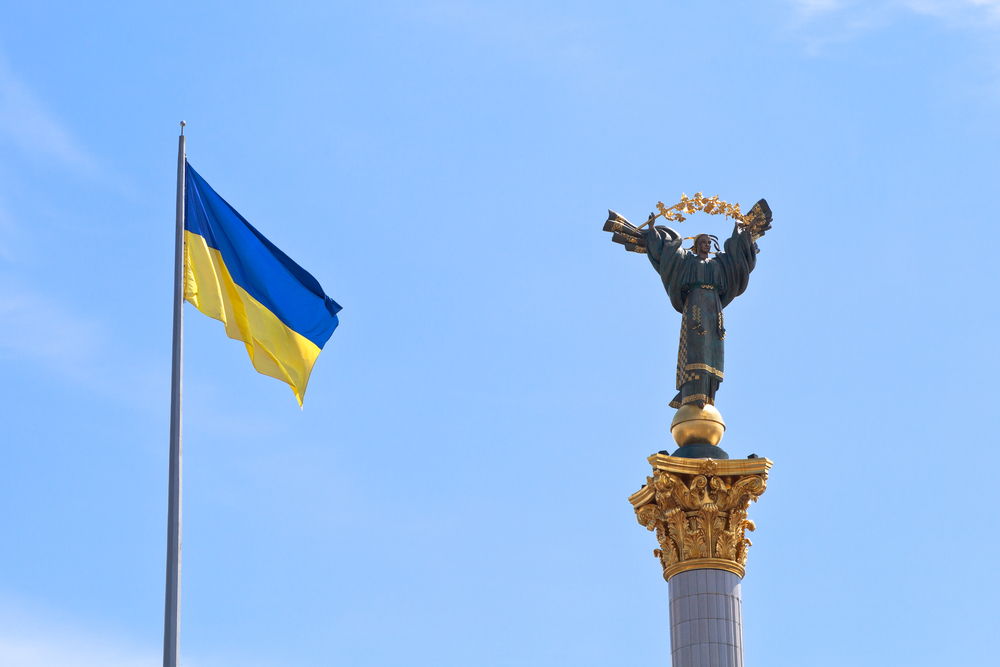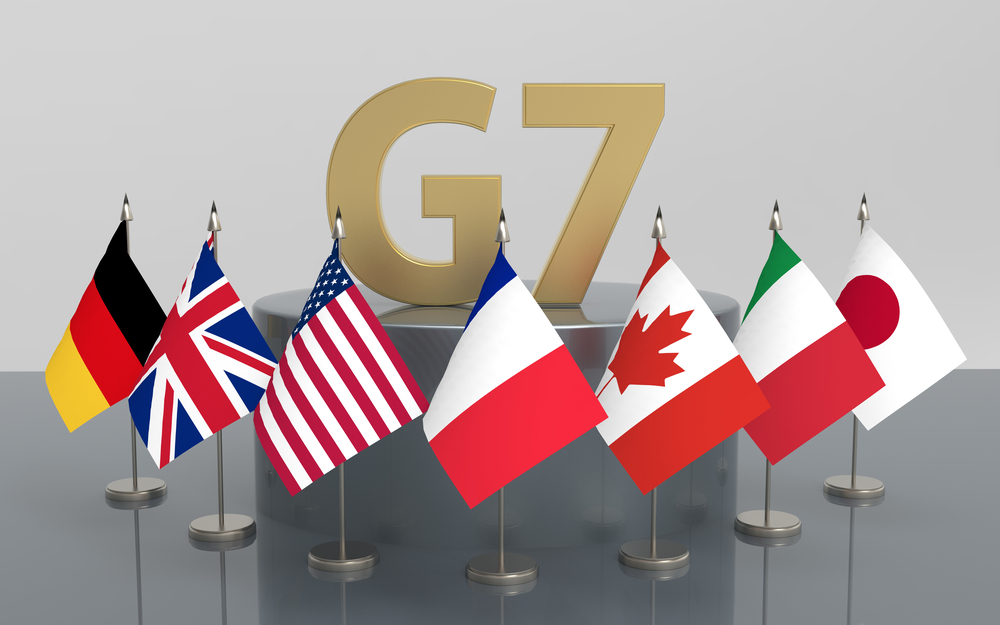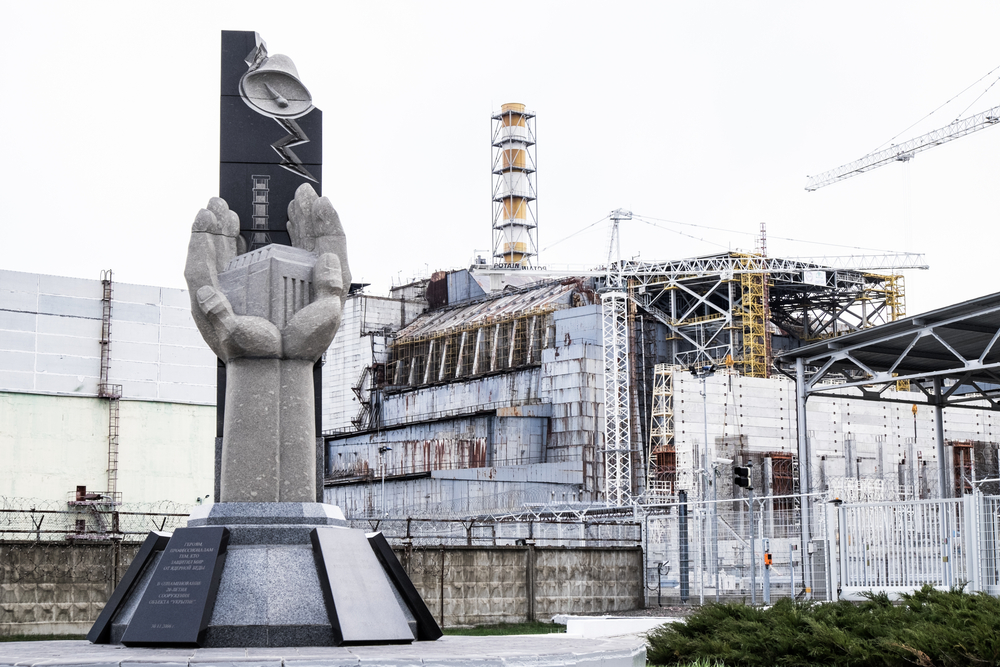Ukraine has made some good anti-corruption reforms under the Presidency of Petro Poroshenko, but now some of them seem to be under threat, says John Lough, Associate fellow of the Russia & Eurasia Programme at Chatham House, the first NATO representative in Moscow, Managing director at JBKL Advisory Ltd. In an exclusive interview with Promote Ukraine, Mr Lough analysed the situation with anticorruption efforts in Ukraine and other countries of the former Soviet Union.
What can you say about anti-corruption fight in Ukraine? Some experts say it’s about success in this area and some experts say it’s about disappointments?
My view is that society’s expectations were too high. The Ukrainian public largely wanted to see people put in jail for having committed offences of corruption, which is perfectly understandable. In some ways, it seems to be an easy way to start to address the problem. But that, in fact, is not the immediate solution. It’s something you have to do at a later stage. The most important thing is to start to close down opportunities for corruption within the government system, within the procurement system.
Was it successful?
I think a lot of good things have been done in that area. And the standout example is the e-procurement system Prozorro, which did not exist before and is now regarded as a world-class platform. Other countries started to copy it. I think it has been a very important change. But you can see other reforms that took place in the Poroshenko years – for example, in the banking sector: closing down these pocket banks of businessmen who were simply stealing state money. Other things that happened around tax legislation and VAT I think were very important reforms. A lot was done in health care to improve and make more transparent the purchases of medicines and equipment outsourcing it, in fact, to international agencies. That was a big step, and it immediately saved money. So, there are a number of achievements that should be recorded. The problem is that some of those seem now to be under threat, in particular around health care reform.
How can common citizens feel this success? Ordinary Ukrainians can still be stopped by the police with no visible reason, bribes still exist, etc.
Of course. But that is another dimension of the problem. I think as a Ukrainian citizen it is important to recognise that some progress has been made in the areas I described. And this practice of closing down space for contact between officials and citizens where an official can exercise discretion and, for example, say: I am not going to issue a document until you pay a bribe or I am not going to admit you to a hospital and give you good treatment until you pay a bribe. That’s maybe not called a bribe, but it has another name. So, that’s very deeply ingrained, it seems to me, in Ukrainian culture, and it’s just something we see across the region, it is, if you like, a sort of Soviet phenomenon.
That relates to those days when people made these payments to try to put oil into the system and make it function better. So, your average Ukrainian citizen will have experienced some changes. As far as I understand it, from what people have told me, if you want to obtain a passport that’s become much easier. If you want to get a driving license, it’s not like it was in the old days. There’s a very good classic definition of corruption, which I particularly like: corruption equals monopoly plus discretion minus accountability. So, if you have a situation where state officials have complete power, where they can exercise discretion and there is no accountability when nobody’s going to ask what they’ve been doing or how many documents they issued, why it wasn’t so many, then they have such power that they can extract bribes. But if you go from this very low level that we are describing where people encounter corrupt practices of daily life to what I regard as a much more serious problem, and that is the big business groups, big financial, industrial groups in the country that own a disproportionate amount of assets. They have ended up having enormous influence over economic policy, government policy. In general, they’re able to put their people into parliament. They’re able to influence passing legislation in their interests. So, this is an entire system that functions in Ukraine. Again, it’s not unusual to see the system in many, many countries around the world that do not have the rule of law.
So it is a global problem…
I think it’s a problem in countries where you simply don’t have rule of law, and many people consider this to be, in fact, a sort of natural state of affairs. So, in the UK where I happened to be born, practices were introduced 300 years ago to improve the transparency of decision-making, the accountability of government, the establishment of an independent judiciary. These things are not the norm. They are the exception. So, we do apply high standards for a reason because we know that if this sort of culture can be created, then society can be much more productive with a much greater degree of equality in a society that would be otherwise. At the same time, in our own Western societies, we are still far from the ideal. There are many things we started to get right, and we have to constantly work at it. One example that I’ll give you in that respect in terms of my country is the amount of dirty money that is laundered through London, including Ukrainian money.
And Russian money…
And Russian money, of course. So we have, some important questions to ask ourselves about why we allowed this to happen and how it started to corrupt parts of our system. This is very corrosive. So, in a sense, we have not always been supportive of all reforms in Ukraine, Russia and the wider region because there are some individuals and organisations in our society that have an interest in maintaining this sort of practice. So, it is a vicious circle. But let’s come back to Ukraine. I am still persuaded that the majority of Ukrainian citizens wish to see some fundamental change in the way the country is governed, so the country is governed in the interests of not a small number of people who set a control of vast flows of money and what we call economic rents. But instead, the average citizen gains from making the government accountable from having their interests heard and being able themselves to exercise influence. So, Ukraine is in this transition period where the institutions are not fully in place, where citizens don’t yet have complete confidence that they can, in fact, achieve this change. It is in a kind of a strange halfway house. We’ve had the election of a president not previously connected or part of the traditional elites. I think this was a cry for real change. People said we want change even if we have somebody totally inexperienced. He seems to come from somewhere else, and that’s taking us in different directions. So, to that extent, society has to keep up the pressure if it wants the change to go deeper.
What about the new proposals from Mikheil Saakashvili? You know that he proposed to have some changes in the judiciary: for example, to reduce the number of judges, liquidate the system of commercial courts and administrative courts and so on. Do you think that these steps might be effective?
Well, it would all come down to the implementation of those steps. I think Mr. Saakashvili is good at the grand gestures. And he does have real experience of running a country and being a possibly the real exception by enacting some reforms that did reduce dramatically levels of corruption. But in terms of tackling high-level corruption, he was less successful. He was successful in disbanding the traffic police, stopping that previous culture of bribe giving and bribe-taking. Similarly, I think, in the low-level courts of Georgia good progress was made. So, he is somebody with bold ideas, which is important in Ukraine at the moment because it needs to keep a bold vision. I’ve only seen a brief summary of what he’s proposing, but it seems to me to make sense. If you put the judiciary in charge of the judicial appointments when you have a judiciary that has no tradition of independence and has operated, according to telephone law, or been susceptible to other forms of influence, then you can’t reasonably expect that group of people recruit a new set of judges with different values of integrity, where the emphasis is put on competence in legal affairs and competence as judges. So, you have to try to break that vicious circle. I’m sure there are some reliable judges in Ukraine, but it’s difficult for them to function in a reliable way. So, how do you then create this culture where you are recruiting the right people, and you’re instilling a new culture and that that’s the obstacle that we faced. So, the High Qualification Commission of Judges is a body within the judiciary that appoints its own people. Judicial reformers have been trying to overhaul the process and have an ethics commission as a part of that body to vet people as potential judges. So until, I think, that problem can be properly resolved, and it has to be done with the consent of the progressive forces within the judiciary, that there is your problem. How do you push that through? You need political will on the part of the authorities, but you also need to co-opt parts of the judiciary to say that we are going to establish a new culture where judges do not wish to be influenced by outside forces. How many judges in Ukraine understand the value of the rule of law? I don’t know, but there are some. I suspect they’re probably in the minority, sadly because another culture has taken hold. We hear some real horror stories about it. The Kyiv District Administrative Court is an example. It is absolutely notorious. I have worked with some businesses in Ukraine and come across just unbelievable decisions, for example, where a lower court has cancelled the decision of a higher court. People say to me, and even Ukrainians said to me, you can’t do that, and the fact is that it actually did happen. And I was talking to a British judge about this. His jaw dropped. He said, “I just cannot imagine it happening anywhere. How is that possible?” In Ukraine sadly, it is possible. So, at the end of the day, it seems to me that society has a choice to make, and it’s up to Ukrainian citizens to recognise that they have significant power and strength. Ukraine has a flourishing civil society – it maybe not as strong in certain regions as others – but we would not have gone this far without that. We have a decentralisation reform and, in some places, it seems to work quite well. In others, less so. But it gives citizens the chance to hold officials accountable at a much lower level. If I were to compare Ukraine to Russia in this respect, it seems to me Ukraine is just light years ahead because it just has this different political culture. Some would describe it as chaotic. It doesn’t operate on a vertical of power in the same way that Russia does. This is a big advantage since it has much more scope as a result to develop local decision making and to devolve power. So, ultimately, if Ukraine wants to turn the corner, that’s where I think it is going to happen. Change will be driven from below rather than from above.
You already compared Ukraine to Russia. But if we speak about other post-Soviet countries, what country is the best in fighting corruption?
Estonia is one of those. It is a very small country with specific experience. Latvia was much slower, and I think there are still significant problems there because of the amount of Russian money that is laundered through Latvia. But Estonia suffered from that problem, too. We know that. So, I think in a way the Baltic states show a good example because you can see the one that went into the fast lane in Estonia, while Latvia stayed in a slow lane and is still dealing with some serious issues. So, you’ve got an important reference point in a neighbouring state – in Romania where anti-corruption reforms became heavily politicised. Bulgaria still faces big problems, particularly in the courts. In Slovakia, judicial reform was a very slow process. It is important to learn from the mistakes of others since they have been through this process 20 years earlier. So, you try to draw the results from that and look at what they have done differently. Ukraine is a much bigger country and that, of course, does have an effect: how do you apply the resources to deal with the problem at that scale? I still think this is a lot that can be learned and we in the analytical community do not know enough about that experience, both positive and negative. It is a question of distilling that experience and then having certainly the judicial reformers in Ukraine study that and learn from it and hopefully apply some of the lessons.
You mentioned Estonia and Latvia but they’re already members of the European Union. If we compare post-Soviet countries except the Baltic states, what country is the best in terms of fight against corruption? Is it Georgia, for example?
I don’t know specifically in the case of Georgia where things stand with judicial reform at the moment, but it was certainly perceived as being a country that had made quite a significant headway in de-sovietising certain practices in government.
And fighting corruption?
Including corruption, definitely. But it tended to strike at the lower level. Just a simple place to go. But the real institutionalised corruption, the influence of big business and then you look at the role that Mr. Ivanishvili has played in Georgia’s development in recent years. Yes, it sadly tells you that maybe Georgia went back a few steps. So, there is definitely something to be learned from that. I don’t think you’re going to find any progress of note in Central Asia, for example. In Russia, from the very early Putin days, the Kremlin sought to bring the judiciary under control, to, in fact, recruit its own generation of judges and to simply institutionalise telephone law, which is in a way a replica of this Soviet system where the law enforcement agencies and the judiciary upheld the rule of the communist party.
They were not there to uphold the constitutional rights of citizens, and because there was no business in the way that we understand it these days. Then, you didn’t have anything like the investment environment to protect. You ask business people who look at investing in the region and not just in Ukraine. What is the first indicator they look at? They look at whether the courts function, what the commercial courts are like, can they get a fair hearing if they get into a dispute with a business partner, or they have a problem? So, I think everybody’s agreed: if Ukraine can establish or start to establish something approaching a recognisably, I would say a democratic legal culture, with accountability, where there is integrity on the part of those making decisions in courts, then investors will have great confidence — and not just foreign investors, but Ukrainian investors, as well. But for many, that seems like a complete fantasy at the moment. But, you know, the fact is these things take decades, if not centuries,to function to a high standard.
And in my country, where in my experience, the judiciary works pretty well, we still, at the moment, have big problems in some of our lower courts because of the way the legal system is financed. People without money can find it hard to assert their rights. So, for us, too, it still it is work in progress, and we should not be arrogant about our achievements.






 UA
UA FR
FR DE
DE


